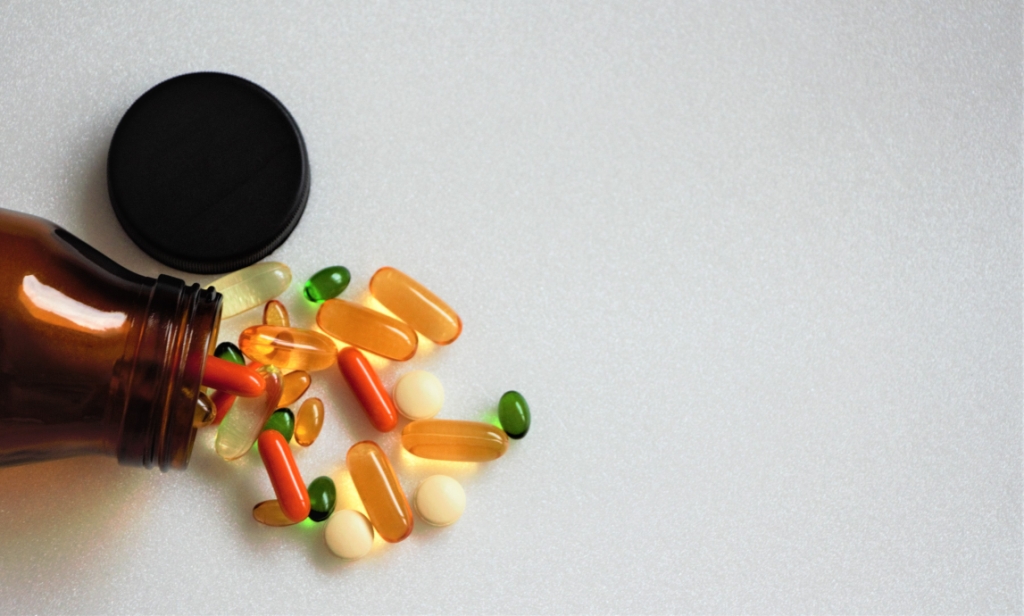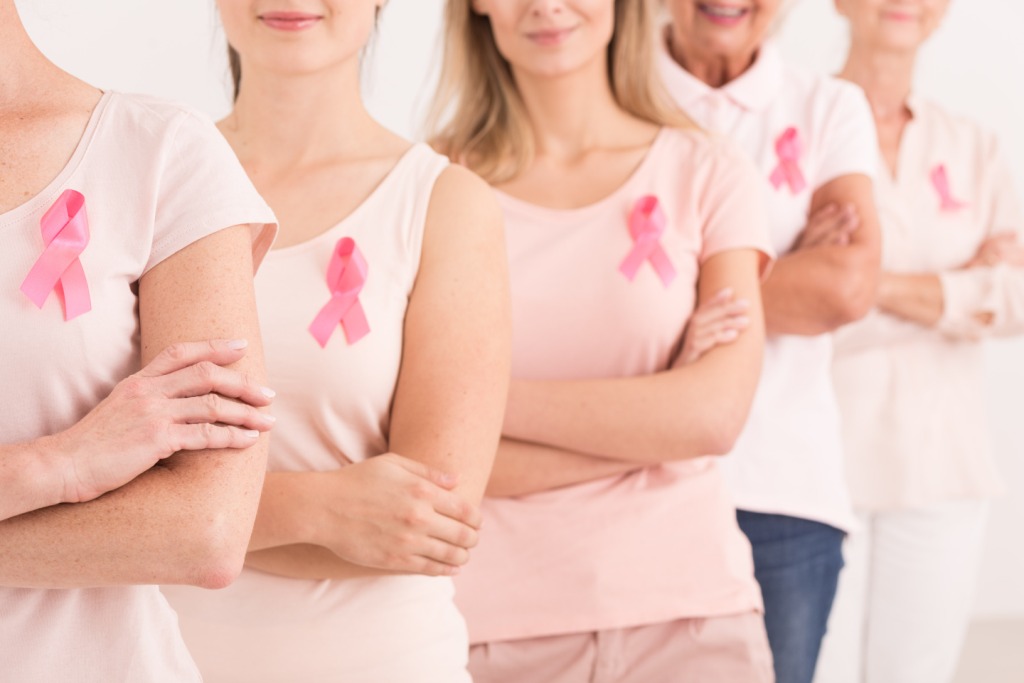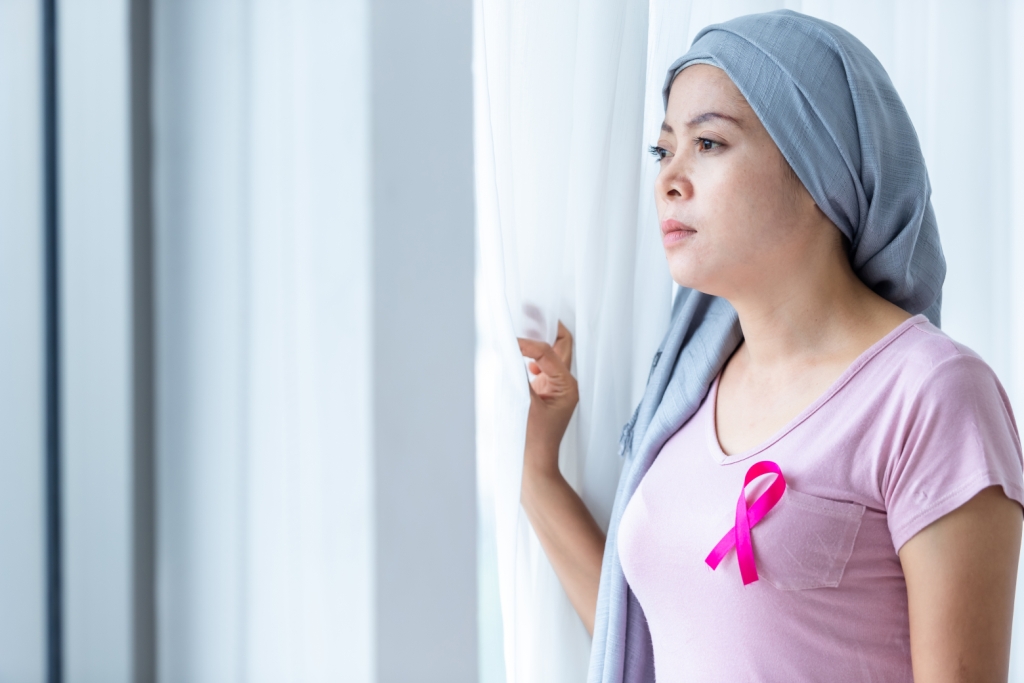We hear it all the time that cancer is a battle to be won and patients will have to continuously fight the disease in order to increase their chances of a good outcome.
As patients with cancer continue to fight the disease, they are often drained out from all the treatments they’ve been undergoing. They require all the energy they can get from healthy food as well as having a good amount of sleep in order to keep on going.
However, the causes of cancer-related conditions such as, feeling weak, fatigue, weight loss and loss of appetite may affect the patient, physically and eventually mentally. So, what can cancer patients do to improve their well-being? Can taking supplements help them with their conditions and treatments?
Well, find out below what Nurul Sahida binti Rani, Clinical Pharmacist (Surgery) from Hospital Sultanah Nur Zahirah, Kuala Terengganu has to say about breast cancer and supplements.

1Twenty80: Should breast cancer patients take supplements? why?
Nurul Sahida binti Rani: It depends on the necessity of the patients. Some patients may need supplements, while others may not necessarily need them.
1Twenty80: When should a breast cancer patient begin to take supplements?
Sahida: Most of the time, patients start taking supplements when they start to lose appetite post chemotherapy or when they’re feeling lethargy. It is not a routine practice that we will ask the patient to take supplements once diagnosis is made.
The supplement intake only helps to improve the patients appetite, gain energy and have a better quality of life.

1Twenty80: Does stopping supplement intake affect the health of a breast cancer patient?
Sahida: As a matter of fact, no. The supplement intake only helps to improve the patients appetite, gain energy and have a better quality of life. Unlike breast cancer treatment that aims to reduce lesions or prevent disease progression.
1Twenty80: What supplements are helpful for people with breast cancer?
Sahida: To be honest, there are no specific supplements for breast cancer patients. As a pharmacist, I’ve had my share of experiences dealing with cancer patients everyday. They often have symptoms such as lack of appetite and lethargic which are the most common conditions one may experience.
Therefore, Multivitamin, B Complex, Ascorbic Acid, Folic Acid and Ferrous Fumarate are often suggested for consumption. However, do take note that Multivitamin with additional Lysine, Ginseng or herbs should be avoided.

1Twenty80: Are there any particular supplements or vitamins that breast cancer individuals should avoid consuming?
Sahida: Some of the supplements or vitamins that should be avoided by individuals with breast cancers includes:
- Herbs
- Ginseng
- Other supplements that contain ingredients that affect the coagulation should be avoided.
Since cancer patients are at higher risk of thrombosis (blood clot formation), supplements that consist of blood clotting agents may put the patient at risk. On the other hand, patients undergoing chemotherapy may also be at risk of bleeding. This group of patients are advised to not take any supplements that may cause blood thinning such as ginseng and ginkgo biloba.
1Twenty80: Is it true that too much antioxidants can have an adverse effect on cancer cells in the body?
Sahida: Supplements should not be taken more than the suggested dose. For example, excessive intake of vitamin E may increase the risk of bleeding and subsequently causing hemorrhagic stroke. There are reports on the association of lung cancer and vitamin E as antioxidants as well.
1Twenty80: Can consuming supplements before and during chemotherapy impact the treatment results? if yes, what are some of the possible impacts?
Sahida: Ferrous fumarate may prepare patients for an optimum hemoglobin level prior to chemotherapy. Intake of B Complex or Multivitamin supplements may help patients to deal with fatigue, lack of appetite post chemotherapy. However, the intake of supplements should not be mistakenly understood as breast cancer treatment as that will have an impact on the results.
Consuming supplements and prescribed medications together can interfere with breast cancer treatments.

1Twenty80: Can supplements interfere with breast cancer treatment and prescribed medicines?
Sahida: As a matter of fact, yes. Consuming supplements and prescribed medications together can interfere with breast cancer treatments. Again, it all depends on the type of supplements one consumes.
1Twenty80: Are collagen supplements effective for breast cancer individuals?
Sahida: As of currently, there are no supporting studies done to show that collagen supplements are effective for breast cancer individuals.
1Twenty80: Can taking supplements during breast cancer treatment increase or reduce the risk of morbidity?

Sahida: Consuming supplements may reduce the morbidity but patients should choose supplements wisely, according to their needs. This is because not all supplements are suitable for breast cancer patients. On top of that, not all breast cancer patients are suitable candidates in consuming supplements.
8 Facts on breast cancer
Be strong because that’s who you are!

As a matter of fact, there is no right way to heal, feel better or cope with the changes that cancer has brought upon our lives.
Nonetheless, what seems to be the most important thing is to gain knowledge about breast cancer and the best possible ways to prevent or reduce your risk of breast cancer. With that being said, here are eight facts that you should know about breast cancer:
- Breast cancer is the most common form of cancer that affects women in Malaysia.
- Breast cancer is common among women, but men can be at risk too.
- According to the Breast Cancer Foundation, one in 19 women are at risk of breast cancer in Malaysia.
- Having more than one pregnancy reduces a woman’s risk of breast cancer.
- Women who had their first child after the age of 35 have a higher risk of developing breast cancer.
- According to the National Cancer Institute, long term use of oral contraceptives are likely to be at risk of breast cancer compared to women who have never used them before.
- Consuming two to five alcoholic drinks per week increases chances of breast cancer in women.
- Living a sedentary lifestyle increases the risk of breast cancer, regardless of a woman’s menopausal status.

It’s never too late to make healthier lifestyle choices including going for regular screenings as early intervention is always better. Speak to your doctor about when to start scheduling for screenings and how to perform a breast self-examination.
Sources: Breast Cancer Foundation, National Cancer Institute














